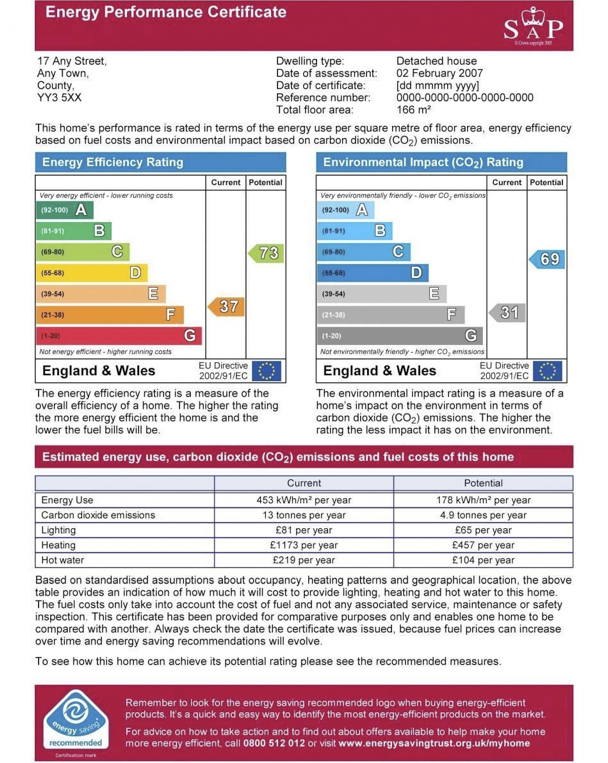Energy Performance Certificates
Since October 2008 it has been law for every rented property in the UK to have an EPC before it can be rented to the prospective tenant.
Contact us
Minimum Energy Efficiency Standards (MEES)
From April 1st 2018 landlords of residential property are prohibited from granting a new lease for properties that have an energy performance certificate (EPC) rating below E unless it has an exemption i.e. Grade II listed status.
Landlords with borderline rated properties (D, E) could easily find that when the next EPC is carried out they find their property no longer complies with the new legislation and falls below the minimum E rating.
Advances in technology, training and EPC assessment has meant that EPC ratings are far more accurate. This, coupled with revisions to building regulations has meant the efficiency requirements of buildings have enhanced significantly since EPC’s were first introduced in 2008.
There is a possibility that the E rated threshold may be raised in the future.







